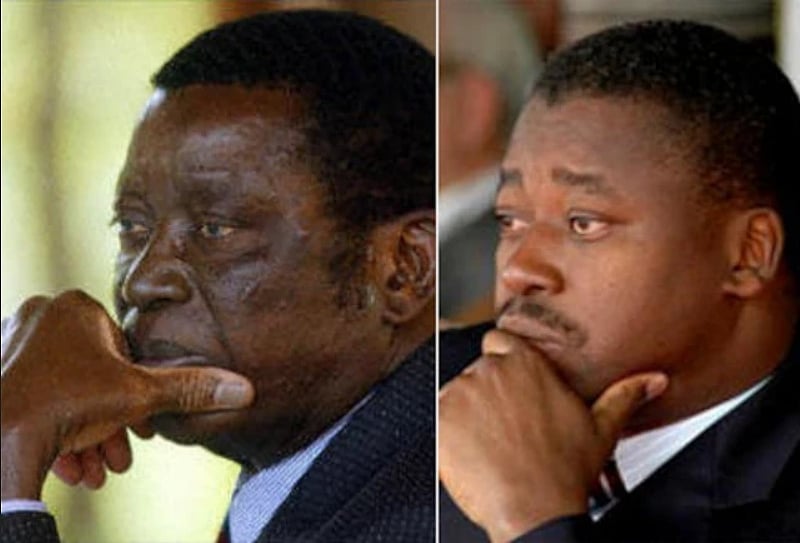Abstract
Togo, a small West African nation, has long been a case study of autocratic persistence under the prolonged rule of the Gnassingbé family. Since 1967, the dynasty has dominated Togolese politics, with limited democratic reforms and persistent allegations of electoral manipulation, human rights violations, and economic stagnation. This paper argues that the Gnassingbé dynasty bears primary responsibility for Togo’s political and socio-economic crises. However, the complacency and tacit endorsement of the Economic Community of West African States (ECOWAS) and the African Union (AU) have exacerbated these issues by failing to enforce democratic norms and accountability. Through a political and institutional analysis, this discussion critically assesses the roles of these regional bodies, exploring how their muted responses have contributed to the entrenchment of authoritarianism in Togo. The paper concludes with recommendations for a recalibrated regional response to address the Togolese impasse.
Introduction
The Republic of Togo has been under the rule of the Gnassingbé family for over five decades. Starting with General Gnassingbé Eyadéma’s seizure of power in 1967, followed by the controversial succession of his son, Faure Gnassingbé, in 2005, the country has witnessed entrenched authoritarianism (Amnesty International, 2020). While national actors are primarily responsible for internal governance, regional institutions like ECOWAS and the AU play significant roles in promoting peace, democracy, and good governance. Their failures to act decisively in the Togolese context raise questions about their effectiveness and political will.
This 38-year rule of Gnassingbe Eyadema from 1967 through coup detat to his death in 2005 serves as one of the Africa’s longest ruling leaders on the continent.
Due to the political structure of Togo, which is characterized by weakened opposition, lack of genuine democratic reforms made this dynasty flourish while the general masses continue to suffer.
The ECOWAS and AU are partly to be apportioned blame because of the following reasons;
Firstly, ECOWAS is partly to be blamed due to their failure to uphold the democratic principles enshrined in the ECOWAS Protocol on Democracy and Good Governance which discourages unconstitutional change of power which was adopted by ECOWAS on 21st December, 2001 in Dakar, Senegal (ECOWAS Protocol, 2001) which H.E Gnassingbe Eyadema the father of Faure was a party and signatory to on that faithful day.
Equally, AU’s African Charter on Democracy, Elections and Governance (2007) also outlines commitments to democratic norms, but enforcement is weak. These regional bodies often rather prioritize stability over democracy, turning a blind eye to dynastic successions, which normally results in chaos or conflict.
Secondly, there is a lack of pressure for reforms by ECOWAS and AU. This means that despite widespread protests in Togo, especially around 2017-2018 periods demanding term limits and electoral reforms, ECOWAS and AU didn’t mount effective pressure on Faure’s regime Instead, they brokered a dialogue without consequences, allowing Faure to contest for 2020 elections.
Also, ECOWAS and AU empower dynasty in Togo by positioning Faure Gnassingbe through regional roles. This was evidence when he was appointed as the regional mediator to DRC- Rwandan conflict by AU and even an ECOWAS Chairman from 2017 to 2018 despite unjust political control at home hence reinforcing his international legitimacy.
Finally, selective engagement and double standards by ECOWAS and AU. ECOWAS and AU have been more vocal and assertive in places like Mali, Burkina Faso, Niger which where military coup occur that gave birth to the Alliance of Sahel States (AES) by these disgruntled states who accused ECOWAS of operating under the influence of foreign powers and betraying its founding principles. But in cases like Togo, Cameroon, and Uganda (Paul Biya and Yoweri Museveni’s long rule), they have been relatively silent, indicating double standards depending on regional geopolitics or strategic interests.
All these incidents might defeat the African AGENDA 2063 goals which is a strategic framework developed by African Union (AU) with regards to its Aspirations (3) Goals (11) and (12) and its priority areas of “Democracy and Good Governance, Human Rights, Justice and the Rule of Law”
Impacts of this dynasty on Togo.
One of the impacts of the Gnassingbe dynasty is political repression. The opposition party operates under duress (Human Rights, Watch 2019), often banned or harassed. e.g. the harassment of the opposition leader Alberto Olympio is a glaring example.
Also, socio-economic decline is one of the impacts of the dynasty. Despite some infrastructural development, poverty remains widespread. The (World Bank, 2023) reports rank Togo among the poorest nations globally.
Furthermore, youth disillusionment and migration are some of the results of the Gnassingbe dynasty. The lack of employment opportunities and political freedoms has led to increased emigration and brain drain in the Republic of Togo. (Freedom House, 2023).
The way forward to end this authoritarian regime in Togo.
First, Regional Reforms in ECOWAS and AU. These bodies must revise their protocols to include stronger enforcement mechanisms, such as targeted sanctions against non-compliant regimes.
Second, Civil Society Empowerment. Greater support should be directed to local NGOs, human rights defenders, and independent media to expose human rights abuses and violations.
Third, International Engagement. The UN, EU, and other international actors should pressure regional organizations, especially ECOWAS and AU, to act decisively on Togo.
Finally, Term Limits Enforcement. ECOWAS and AU must adopt a binding policy against third-termism and constitutional manipulations like what Faure Gnassingbe has done now to perpetuate his rule until 2030.
In conclusion, while the Gnassingbe dynasty is primarily a result of domestic authoritarian entrenchment, ECOWAS and AU bear a partial responsibility for its failure to enforce democratic norms and severe economic sanctions, and inconsistency in how they respond to undemocratic power grabs.
References
Amnesty International. (2020). Togo: Repression of Dissent Intensifies. Human Rights Watch. (2019). Togo: Police Kill Protesters during Crackdown. African Union. (2020). African Charter on Democracy, Elections and Governance. ECOWAS Protocol. (2001). Protocol on Democracy and Good Governance. Freedom House. (2023). Togo Country Report. World Bank. (2023). Togo Overview.
By Godwin Kwablah Avoryi
Member, International Relations & Diplomacy Network, Ghana and an Advocate, UN SDG’s 16.


